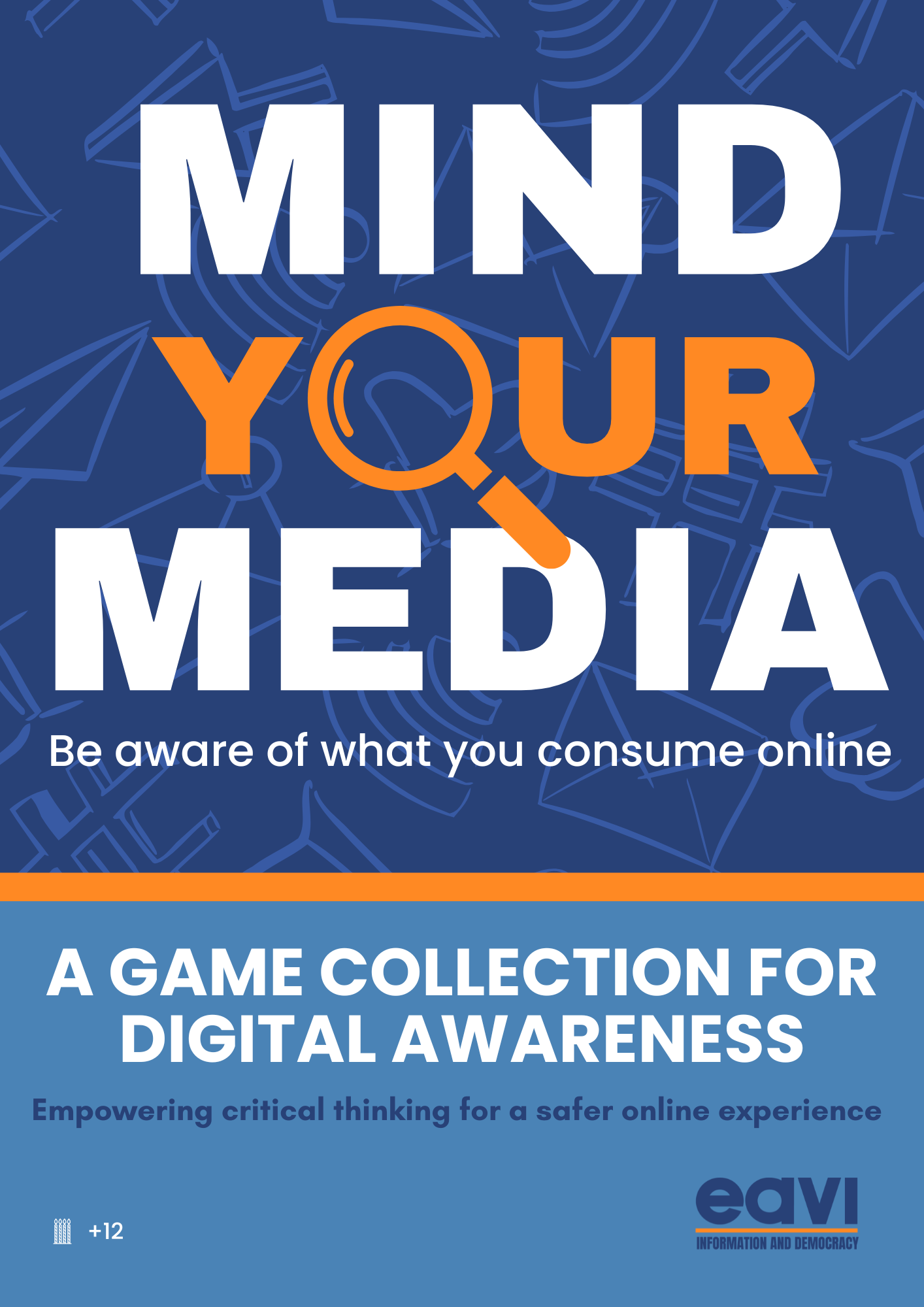
The rise of digital media has quickly altered the way parents and children communicate, entertain themselves, gather information, and navigate daily life, especially during exceptional circumstances such as the COVID-19 pandemic. In today’s world, even very young children are regular users of smartphones and tablets, introducing new challenges to parent-child relationships and the parental role. Researches indicate that both young and teenage users encounter challenges in locating, organising, and assessing information, as well as managing their online privacy and ensuring personal safety. Therefore, parents play a crucial role as the primary guides for children’s interactions with digital devices, responsible for incorporating their usage into everyday activities such as play, entertainment, learning, and mealtime. This involves encouraging constructive and safe usage. In this sense, digital parenting refers to the efforts and strategies employed by parents to understand, encourage, and monitor their children’s engagements in digital spaces.
Digital parenting behaviours are complex and multifaceted as parenting strategies in the digital age involve various aspects, such as overseeing how adolescents use technology, setting rules, ensuring compliance, teaching digital skills, managing online learning, and leveraging internet opportunities. It is expected that digitalization will continue in the future; therefore, there is an increasingly important need for effective digital parenting strategies and precise methods to assess them. Moreover, as mentioned previously, children are not necessarily “digitally literate” despite growing up surrounded by new media. Therefore, parents play a crucial role in mediating their children’s digital experiences and promoting the safe and constructive use of digital technologies.
There are many studies conducted on the topic of digital parenting and effective strategies. It is argued that setting rules about internet content tends to reduce compulsive web use in children, while strict time limits may have the opposite effect, leading to more compulsive behaviours. Additionally, children’s online behaviour can influence parental rules, potentially resulting in stricter regulations. However, research suggests that parental behaviours have a stronger impact on children’s online habits than explicit rules. Consistency between parental rules and behaviours, such as avoiding smartphone use during meals, is associated with lower problematic internet use in adolescents. Parents serve as role models for their children’s digital behaviours, with parental involvement in online activities positively influencing children’s engagement in the same activities. Overall, an agreement between parental rules and behaviours, along with positive modelling of appropriate digital behaviours, are key factors in promoting self-regulation and safe use of digital technologies in children.
Furthermore, an important aspect of digital parenting is digital and media literacy skills. It is suggested that professionals can play a crucial role in helping parents adjust their guidance to match their children’s age and development. This support becomes achievable when parents themselves enhance their knowledge and digital skills, possibly through media literacy programs, recognizing how vital these aspects are in effective parenting. Parents who feel less confident with technology and their digital skills, or worry about online dangers may tend to restrict or prohibit their children’s online activities. On the contrary, families with stronger digital skills are likely to explore online opportunities more freely, building resilience against potential risks they may encounter.
Therefore, by integrating media literacy principles into parenting practices, parents can empower their children to analyze online information critically, discern credible sources from unreliable ones, and identify misinformation or bias. Teaching media literacy skills enables parents to guide their children in understanding the persuasive techniques used in advertisements, interpreting media messages, and fostering a healthy scepticism towards online content. Moreover, setting digital boundaries, fostering open communication, leading by example with responsible digital behaviour, and educating children about digital safety and privacy further contribute to a comprehensive approach to digital parenting. Ultimately, prioritizing media literacy within the realm of digital parenting equips children with the tools they need to navigate the digital world safely and responsibly while fostering a supportive environment where parents actively engage in their children’s digital journeys.
If you are seeking comprehensive guidance on navigating the challenges of digital parenting, the book titled “Empowering Parents in the Digital Age”, edited by Paolo Celot, offers insights and practical recommendations. Documenting the European Safe Online Initiative’s efforts across multiple countries, this book addresses the complexities of children’s online media use and the role of parents in fostering digital literacy. Covering a range of topics and providing policy recommendations, it serves as a valuable resource for organizations, policymakers, and experts in this field. Whether seeking strategies to support children’s well-being or tools to enhance media literacy skills, this book equips readers with the knowledge and resources needed to navigate the digital area confidently. You can access the book via the following link on EAVI’s website: https://eavi.eu/research/the-esoi-book/
REFERENCES:

The rise of digital media has quickly altered the way parents and children communicate, entertain themselves, gather information, and navigate daily life, especially during exceptional circumstances such as the COVID-19 pandemic. In today’s world, even very young children are regular users of smartphones and tablets, introducing new challenges to parent-child relationships and the parental role. Researches indicate that both young and teenage users encounter challenges in locating, organising, and assessing information, as well as managing their online privacy and ensuring personal safety. Therefore, parents play a crucial role as the primary guides for children’s interactions with digital devices, responsible for incorporating their usage into everyday activities such as play, entertainment, learning, and mealtime. This involves encouraging constructive and safe usage. In this sense, digital parenting refers to the efforts and strategies employed by parents to understand, encourage, and monitor their children’s engagements in digital spaces.
Digital parenting behaviours are complex and multifaceted as parenting strategies in the digital age involve various aspects, such as overseeing how adolescents use technology, setting rules, ensuring compliance, teaching digital skills, managing online learning, and leveraging internet opportunities. It is expected that digitalization will continue in the future; therefore, there is an increasingly important need for effective digital parenting strategies and precise methods to assess them. Moreover, as mentioned previously, children are not necessarily “digitally literate” despite growing up surrounded by new media. Therefore, parents play a crucial role in mediating their children’s digital experiences and promoting the safe and constructive use of digital technologies.
There are many studies conducted on the topic of digital parenting and effective strategies. It is argued that setting rules about internet content tends to reduce compulsive web use in children, while strict time limits may have the opposite effect, leading to more compulsive behaviours. Additionally, children’s online behaviour can influence parental rules, potentially resulting in stricter regulations. However, research suggests that parental behaviours have a stronger impact on children’s online habits than explicit rules. Consistency between parental rules and behaviours, such as avoiding smartphone use during meals, is associated with lower problematic internet use in adolescents. Parents serve as role models for their children’s digital behaviours, with parental involvement in online activities positively influencing children’s engagement in the same activities. Overall, an agreement between parental rules and behaviours, along with positive modelling of appropriate digital behaviours, are key factors in promoting self-regulation and safe use of digital technologies in children.
Furthermore, an important aspect of digital parenting is digital and media literacy skills. It is suggested that professionals can play a crucial role in helping parents adjust their guidance to match their children’s age and development. This support becomes achievable when parents themselves enhance their knowledge and digital skills, possibly through media literacy programs, recognizing how vital these aspects are in effective parenting. Parents who feel less confident with technology and their digital skills, or worry about online dangers may tend to restrict or prohibit their children’s online activities. On the contrary, families with stronger digital skills are likely to explore online opportunities more freely, building resilience against potential risks they may encounter.
Therefore, by integrating media literacy principles into parenting practices, parents can empower their children to analyze online information critically, discern credible sources from unreliable ones, and identify misinformation or bias. Teaching media literacy skills enables parents to guide their children in understanding the persuasive techniques used in advertisements, interpreting media messages, and fostering a healthy scepticism towards online content. Moreover, setting digital boundaries, fostering open communication, leading by example with responsible digital behaviour, and educating children about digital safety and privacy further contribute to a comprehensive approach to digital parenting. Ultimately, prioritizing media literacy within the realm of digital parenting equips children with the tools they need to navigate the digital world safely and responsibly while fostering a supportive environment where parents actively engage in their children’s digital journeys.
If you are seeking comprehensive guidance on navigating the challenges of digital parenting, the book titled “Empowering Parents in the Digital Age”, edited by Paolo Celot, offers insights and practical recommendations. Documenting the European Safe Online Initiative’s efforts across multiple countries, this book addresses the complexities of children’s online media use and the role of parents in fostering digital literacy. Covering a range of topics and providing policy recommendations, it serves as a valuable resource for organizations, policymakers, and experts in this field. Whether seeking strategies to support children’s well-being or tools to enhance media literacy skills, this book equips readers with the knowledge and resources needed to navigate the digital area confidently. You can access the book via the following link on EAVI’s website: https://eavi.eu/research/the-esoi-book/
REFERENCES:

The rise of digital media has quickly altered the way parents and children communicate, entertain themselves, gather information, and navigate daily life, especially during exceptional circumstances such as the COVID-19 pandemic. In today’s world, even very young children are regular users of smartphones and tablets, introducing new challenges to parent-child relationships and the parental role. Researches indicate that both young and teenage users encounter challenges in locating, organising, and assessing information, as well as managing their online privacy and ensuring personal safety. Therefore, parents play a crucial role as the primary guides for children’s interactions with digital devices, responsible for incorporating their usage into everyday activities such as play, entertainment, learning, and mealtime. This involves encouraging constructive and safe usage. In this sense, digital parenting refers to the efforts and strategies employed by parents to understand, encourage, and monitor their children’s engagements in digital spaces.
Digital parenting behaviours are complex and multifaceted as parenting strategies in the digital age involve various aspects, such as overseeing how adolescents use technology, setting rules, ensuring compliance, teaching digital skills, managing online learning, and leveraging internet opportunities. It is expected that digitalization will continue in the future; therefore, there is an increasingly important need for effective digital parenting strategies and precise methods to assess them. Moreover, as mentioned previously, children are not necessarily “digitally literate” despite growing up surrounded by new media. Therefore, parents play a crucial role in mediating their children’s digital experiences and promoting the safe and constructive use of digital technologies.
There are many studies conducted on the topic of digital parenting and effective strategies. It is argued that setting rules about internet content tends to reduce compulsive web use in children, while strict time limits may have the opposite effect, leading to more compulsive behaviours. Additionally, children’s online behaviour can influence parental rules, potentially resulting in stricter regulations. However, research suggests that parental behaviours have a stronger impact on children’s online habits than explicit rules. Consistency between parental rules and behaviours, such as avoiding smartphone use during meals, is associated with lower problematic internet use in adolescents. Parents serve as role models for their children’s digital behaviours, with parental involvement in online activities positively influencing children’s engagement in the same activities. Overall, an agreement between parental rules and behaviours, along with positive modelling of appropriate digital behaviours, are key factors in promoting self-regulation and safe use of digital technologies in children.
Furthermore, an important aspect of digital parenting is digital and media literacy skills. It is suggested that professionals can play a crucial role in helping parents adjust their guidance to match their children’s age and development. This support becomes achievable when parents themselves enhance their knowledge and digital skills, possibly through media literacy programs, recognizing how vital these aspects are in effective parenting. Parents who feel less confident with technology and their digital skills, or worry about online dangers may tend to restrict or prohibit their children’s online activities. On the contrary, families with stronger digital skills are likely to explore online opportunities more freely, building resilience against potential risks they may encounter.
Therefore, by integrating media literacy principles into parenting practices, parents can empower their children to analyze online information critically, discern credible sources from unreliable ones, and identify misinformation or bias. Teaching media literacy skills enables parents to guide their children in understanding the persuasive techniques used in advertisements, interpreting media messages, and fostering a healthy scepticism towards online content. Moreover, setting digital boundaries, fostering open communication, leading by example with responsible digital behaviour, and educating children about digital safety and privacy further contribute to a comprehensive approach to digital parenting. Ultimately, prioritizing media literacy within the realm of digital parenting equips children with the tools they need to navigate the digital world safely and responsibly while fostering a supportive environment where parents actively engage in their children’s digital journeys.
If you are seeking comprehensive guidance on navigating the challenges of digital parenting, the book titled “Empowering Parents in the Digital Age”, edited by Paolo Celot, offers insights and practical recommendations. Documenting the European Safe Online Initiative’s efforts across multiple countries, this book addresses the complexities of children’s online media use and the role of parents in fostering digital literacy. Covering a range of topics and providing policy recommendations, it serves as a valuable resource for organizations, policymakers, and experts in this field. Whether seeking strategies to support children’s well-being or tools to enhance media literacy skills, this book equips readers with the knowledge and resources needed to navigate the digital area confidently. You can access the book via the following link on EAVI’s website: https://eavi.eu/research/the-esoi-book/
REFERENCES:








































































































































































